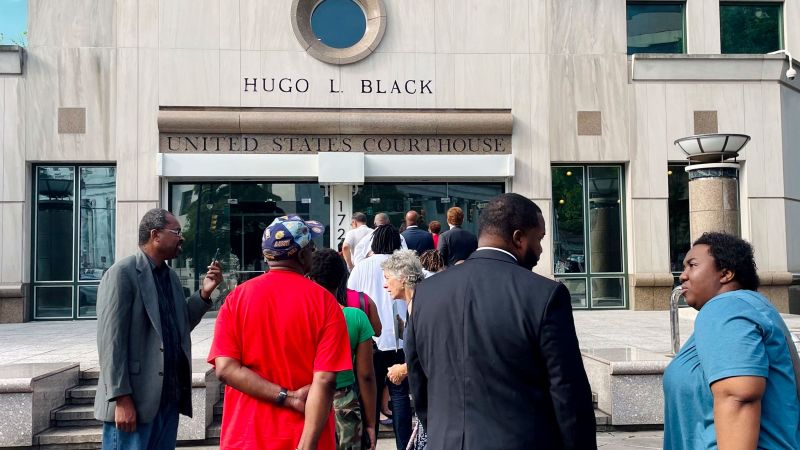A federal court blocked a newly-drawn Alabama congressional map because it didn’t create a second majority-Black district, as the Supreme Court had ordered earlier this year.
In a unanimous decision from a three-judge panel, which had overseen the case before it reached the Supreme Court, the judges wrote that they were “disturbed” by Alabama’s actions in the case.
“We are deeply troubled that the State enacted a map that the State readily admits does not provide the remedy we said federal law requires,” the judges, two of whom were appointed by former President Donald Trump, wrote.
White voters are currently the majority in six of the state’s seven congressional districts, although 27% of the state’s population is Black.
This redistricting battle – and separate, pending litigation over congressional maps in states like Georgia and Florida – could determine which party controls the US House of Representatives after next year’s elections. Republicans currently hold a razor-thin majority in the chamber.
The judges ordered a special master to submit three proposed maps that would create a second Black-majority district by September 25.
This summer, the Supreme Court, in a 5-4 ruling, had affirmed an earlier decision by the three-judge panel and ordered the state to redraw congressional maps to include a second majority-Black district or “something quite close to it.”
The Supreme Court’s surprise decision in Alabama – coming after the right-leaning high court has chipped away at other parts of the Voting Rights Act in recent years – has given fresh hope to voting rights activists and Democrats that they could prevail in challenges to other maps they view as discriminating against minorities.
But the map approved by Alabama’s Republican-dominated legislature – and signed into law by GOP Gov. Kay Ivey – in July created only one majority-Black district and boosted the share of Black voters in a second district from roughly 30% to nearly 40%.
The pending cases center on whether GOP state legislators drew congressional maps after the 2020 Census that weaken the power of Black voters in violation of Section 2 of the historic Voting Rights Act.
Republicans control all statewide offices in Alabama and all but one congressional seat. The single Black-majority congressional district is represented by Democratic Rep. Terri Sewell, the state’s first Black woman elected to Congress.
Alabama officials have argued that the map as redrawn by state lawmakers was aimed at maintaining traditional guidelines for congressional redistricting, such as keeping together communities of interest. And they have signaled interest in again appealing the issue to the high court, with the apparent hope of potentially swaying one of the justices that sided with the majority.
The state’s briefs before the three-judge panel referenced a concurring opinion by Justice Brett Kavanaugh – one of the two conservatives who sided with the liberal justices on the high court to vote against the Alabama map – that questioned whether “race-based redistricting” can “extend indefinitely into the future.”
Alabama Attorney General Steve Marshall had argued that a separate Supreme Court ruling in June – after the Alabama decision came down – that ended affirmative action in college admissions means that using a map in which “race predominates” would open up the state to claims that it is violating the 14th Amendment’s guarantee of equal protection.
The plaintiffs in the Alabama case, however, argued that the state openly defied the courts by failing to create a second Black-majority district and claimed Alabama officials have sought ways to delay compliance as the 2024 election draws closer by attempting to relitigate old issues.
This story has been updated with additional developments.
Read the full article here





